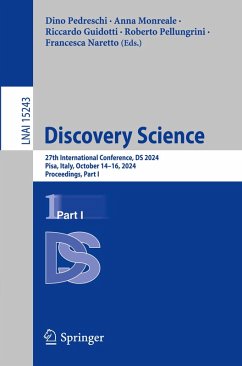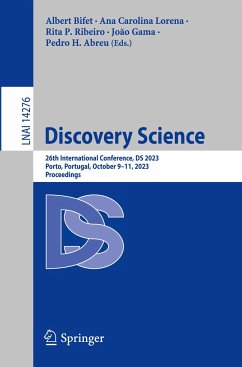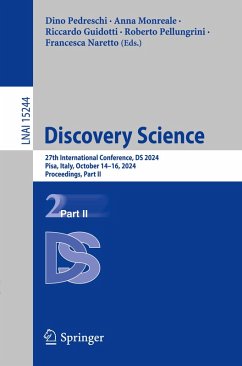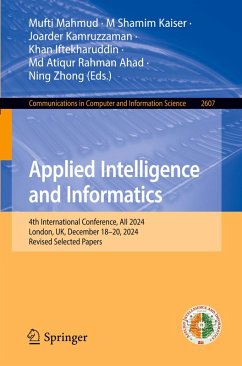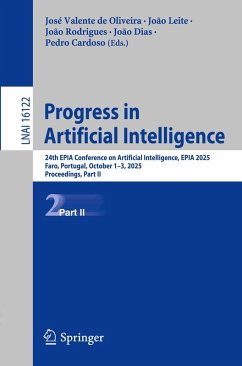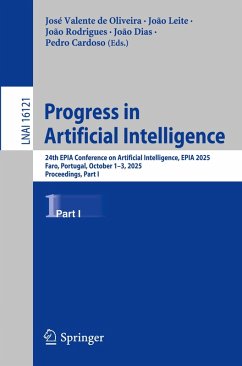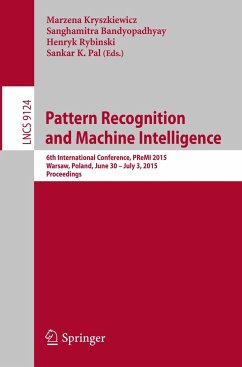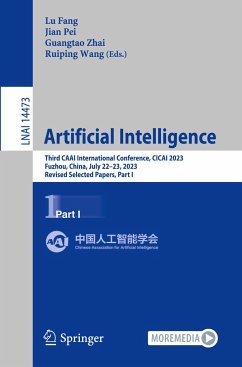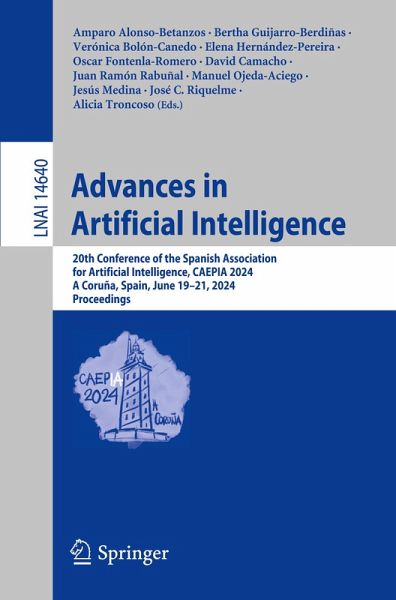
Advances in Artificial Intelligence
20th Conference of the Spanish Association for Artificial Intelligence, CAEPIA 2024, A Coruña, Spain, June 19-21, 2024, Proceedings
Herausgegeben: Alonso-Betanzos, Amparo; Guijarro-Berdiñas, Bertha; Bolón-Canedo, Verónica; Hernández-Pereira, Elena; Fontenla-Romero, Oscar; Camacho, David; Rabuñal, Juan Ramón; Ojeda-Aciego, Manuel; Medi

PAYBACK Punkte
25 °P sammeln!
This book constitutes the refereed proceedings of the 20th Conference of the Spanish Association for Artificial Intelligence, CAEPIA 2024, held in A Coruña, Spain, during June 19-21, 2024.The 27 full papers presented in this book were carefully reviewed and selected from 38 submissions.CAEPIA is a forum open to researchers from all over the world to present and discuss their latest scientific and technological advances in Artificial Intelligence (AI).The papers cover such themes as: machine learning, search and optimization, creativity and AI, ontologies and knowledge graphs, education and AI...
This book constitutes the refereed proceedings of the 20th Conference of the Spanish Association for Artificial Intelligence, CAEPIA 2024, held in A Coruña, Spain, during June 19-21, 2024.
The 27 full papers presented in this book were carefully reviewed and selected from 38 submissions.
CAEPIA is a forum open to researchers from all over the world to present and discuss their latest scientific and technological advances in Artificial Intelligence (AI).
The papers cover such themes as: machine learning, search and optimization, creativity and AI, ontologies and knowledge graphs, education and AI, foundation, models and applications of AI, uncertainty in AI, ambient intelligence and smart environments, explainable and responsible AI, fuzzy logic, natural language processing, knowledge representation, reasoning and logic, constraints, search and planning, multi-agent systems, computer vision and robotics, and intelligent web and information retrieval.
The 27 full papers presented in this book were carefully reviewed and selected from 38 submissions.
CAEPIA is a forum open to researchers from all over the world to present and discuss their latest scientific and technological advances in Artificial Intelligence (AI).
The papers cover such themes as: machine learning, search and optimization, creativity and AI, ontologies and knowledge graphs, education and AI, foundation, models and applications of AI, uncertainty in AI, ambient intelligence and smart environments, explainable and responsible AI, fuzzy logic, natural language processing, knowledge representation, reasoning and logic, constraints, search and planning, multi-agent systems, computer vision and robotics, and intelligent web and information retrieval.



